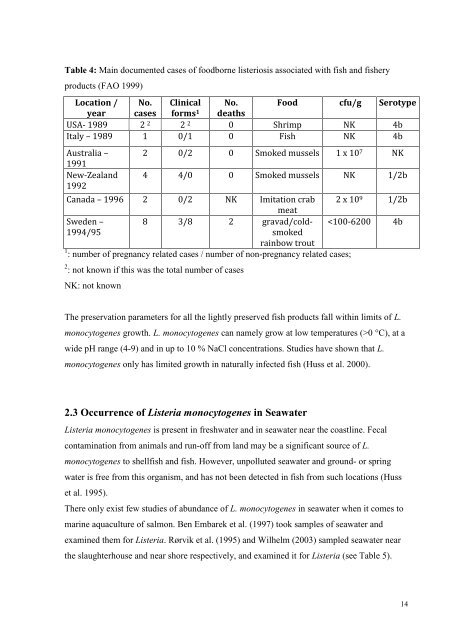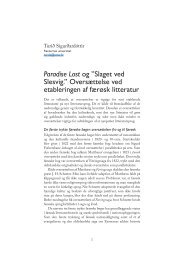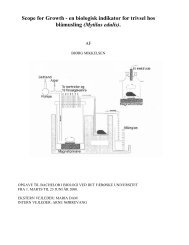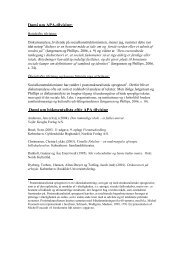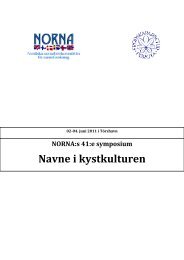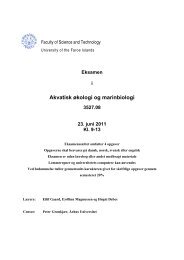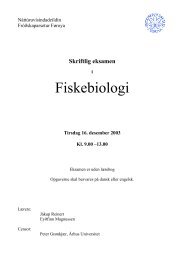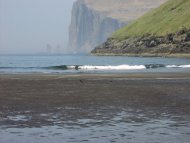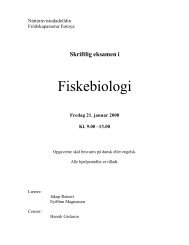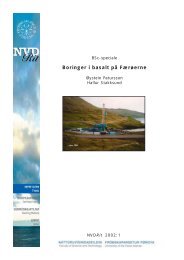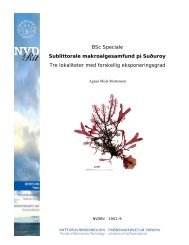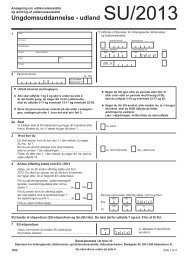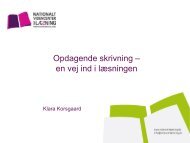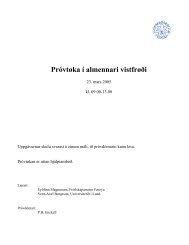Infectious Pancreatic Necrosis Virus (IPNV) - Fróðskaparsetur Føroya
Infectious Pancreatic Necrosis Virus (IPNV) - Fróðskaparsetur Føroya
Infectious Pancreatic Necrosis Virus (IPNV) - Fróðskaparsetur Føroya
You also want an ePaper? Increase the reach of your titles
YUMPU automatically turns print PDFs into web optimized ePapers that Google loves.
Table 4: Main documented cases of foodborne listeriosis associated with fish and fishery<br />
products (FAO 1999)<br />
Location / No. Clinical<br />
year cases forms1 No. Food cfu/g Serotype<br />
deaths<br />
USA- 1989 2 2 2 2 0 Shrimp NK 4b<br />
Italy – 1989 1 0/1 0 Fish NK 4b<br />
Australia –<br />
1991<br />
New-Zealand<br />
1992<br />
2 0/2 0 Smoked mussels 1 x 10 7 NK<br />
4 4/0 0 Smoked mussels NK 1/2b<br />
Canada – 1996 2 0/2 NK Imitation crab<br />
meat<br />
2 x 109 1/2b<br />
Sweden – 8 3/8 2 gravad/cold- 0 °C), at a<br />
wide pH range (4-9) and in up to 10 % NaCl concentrations. Studies have shown that L.<br />
monocytogenes only has limited growth in naturally infected fish (Huss et al. 2000).<br />
2.3 Occurrence of Listeria monocytogenes in Seawater<br />
Listeria monocytogenes is present in freshwater and in seawater near the coastline. Fecal<br />
contamination from animals and run-off from land may be a significant source of L.<br />
monocytogenes to shellfish and fish. However, unpolluted seawater and ground- or spring<br />
water is free from this organism, and has not been detected in fish from such locations (Huss<br />
et al. 1995).<br />
There only exist few studies of abundance of L. monocytogenes in seawater when it comes to<br />
marine aquaculture of salmon. Ben Embarek et al. (1997) took samples of seawater and<br />
examined them for Listeria. Rørvik et al. (1995) and Wilhelm (2003) sampled seawater near<br />
the slaughterhouse and near shore respectively, and examined it for Listeria (see Table 5).<br />
14


